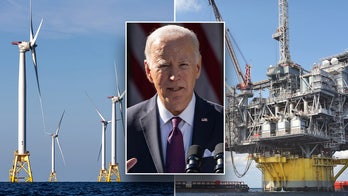House Republicans are advocating for the inclusion of the SAVE Act, requiring proof of citizenship for voting in federal elections, in an interim spending bill ahead of the upcoming election. The move aims to address concerns over potential voter fraud and align with former President Trump's agenda.
As the House prepares to reconvene for the first time since late July, Speaker Mike Johnson has initiated a conference call with House GOP members to discuss attaching the Safeguard American Voter Eligibility Act (SAVE Act) to an interim spending bill. The move seeks to avert a government shutdown on Oct. 1 and implement a requirement for proof of citizenship to vote in federal elections.

GOP Push for Proof of Citizenship Voting Requirement as Election Looms
The SAVE Act requires voters to present proof of citizenship before casting ballots, a measure that garnered unanimous support from Republicans and five Democratic votes during its passage in July. Republicans argue that the legislation is necessary to safeguard election integrity and prevent non-citizens from influencing election outcomes.
However, the proposal faces opposition from Democrats who argue that there is no evidence of widespread voter fraud or undocumented immigrants casting ballots. Sen. Mark Kelly (D-Ariz.) dismissed the SAVE Act as "a solution looking for a problem."

GOP Push for Proof of Citizenship Voting Requirement as Election Looms
The Freedom Caucus, a conservative bloc within the House GOP, played a significant role in proposing the interim spending bill and citizenship voting plan. Their concerns include the potential for voter fraud, the allowance of noncitizens to vote in local elections in certain jurisdictions, and the perception of the SAVE Act as a favorable campaign issue.
Republicans believe that the SAVE Act will resonate with voters and put Democrats on the defensive, highlighting the consequences of the border crisis. Additionally, former President Trump has encouraged Republicans to adopt this approach, further bolstering its support within the party.

GOP Push for Proof of Citizenship Voting Requirement as Election Looms
Speaker Johnson, who faced criticism from the right for his handling of spending bills in the spring, seeks to strengthen his position by advocating for the citizenship voting requirement. The move aligns with Trump's agenda and appeals to conservative voters, potentially mitigating any backlash from the right.
The approach also serves to unify Republicans and enhance the speaker's authority while simultaneously pressuring Democrats. However, it is unclear whether the plan can secure the necessary votes, as some Republicans typically oppose interim spending bills.

GOP Push for Proof of Citizenship Voting Requirement as Election Looms
If the House approves the combined bill, the Democrat-controlled Senate is likely to remove the SAVE Act and return a shorter interim spending bill to the House. This would force the House to align with the Senate before the Sept. 30 deadline, leaving Speaker Johnson with a crucial decision.
He must either maintain his stance and risk a government shutdown weeks before the election, or accept the Senate's position and pass the bill with bipartisan support. The outcome would depend on the balance of power within the House and the urgency to avoid a shutdown.
Republicans are eager to leave Washington early to focus on campaigning, and the possibility of advancing the spending bill with more Democrats than Republicans would arouse anger from the right. However, many Republicans would secretly welcome the failure of the citizenship/2025 spending plan, enabling them to accept a shorter-term package and return home for campaigning sooner.
The Republican leadership, mindful of the importance of the upcoming election, recognizes that a government shutdown would be politically unwise. The party is facing fundraising challenges and crucial races that will determine control of the House. Thus, they are likely to prioritize avoiding a shutdown and securing votes early rather than engaging in an extended battle over spending.










